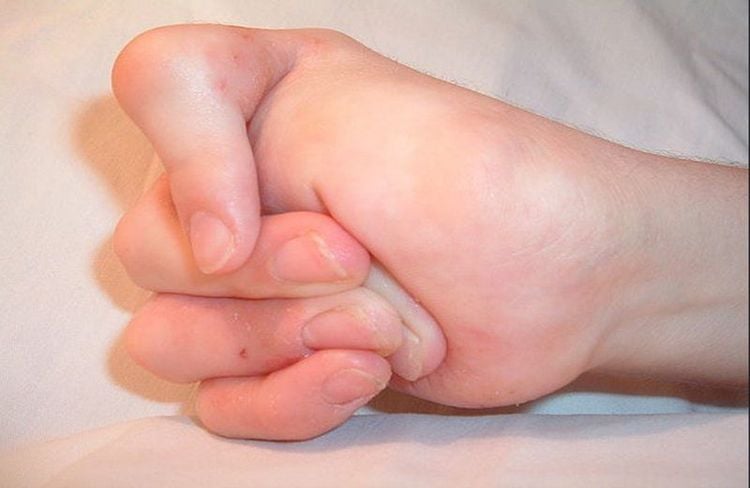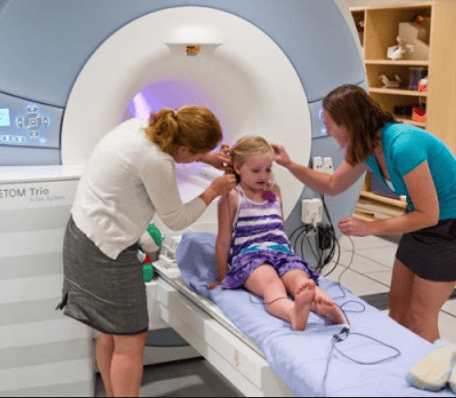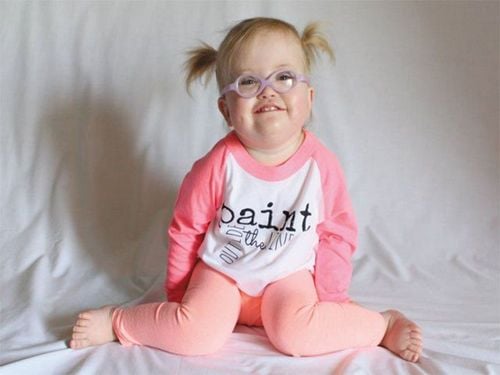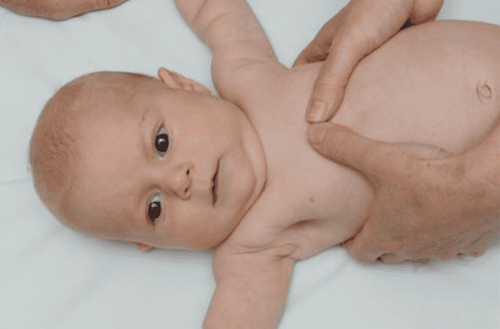This is an automatically translated article.
The article was professionally approved by Master, Doctor Huynh Bao Toan - Department of Pediatrics - Neonatology - Vinmec Nha Trang International General Hospital.1. Cause
Freeman-Sheldon syndrome is a congenital disorder in children characterized by joint deformity (joint stiffness) that limits movement of the hands and feet, accompanied by head abnormalities. or young faces.The cause of Freeman-Sheldon syndrome is currently unknown. According to scientists, the majority of pathological cases can occur due to mutations in the MYH3 gene (not all cases). In some cases, having the condition inherited from an autosomal dominant trait (inheriting the defective gene) from one parent is enough to cause Freeman-Sheldon syndrome in a child.

2. Symptoms
Typical signs that help identify Freeman-Sheldon syndrome are:The child has abnormalities of the skull and face (whistle-like mouth) Hand and foot defects (congenital clubfoot). Messy teeth. Abnormally small tongue Deformities related to the mouth and jaw, limited activity of the soft palate, causing nasal voice, difficulty speaking, continuous vomiting, difficulty swallowing, breathing difficulties. Eye defects such as: cracked eyelids and drooping eyelids. Skeletal deformities: kyphosis, clubfoot and joint deformity (multi-joint contracture) including knee and shoulder joints lead to limited range of motion in these organs.
3. Diagnosis and treatment
3.1. Diagnosis To make a diagnosis of Freeman-Sheldon syndrome, a doctor usually relies on a medical history and physical examination with observation of characteristic facial features. Imaging methods such as CT scans and X-rays help determine the presence and status of abnormalities.
3.2. Treatment Currently, doctors have not found a cure for Freeman-Sheldon syndrome. The goal of treatment is to control symptoms and help the person live a better life.
The treatment of this particular congenital disorder also requires a multidisciplinary effort from a team of specialists including: pediatricians, ophthalmologists, dentists, orthopedists, neurologists, surgeons neurosurgery... together develop a treatment plan that is most appropriate for the child with the disease.
In some cases, the doctor may recommend surgery to correct some bone deformities, joint deformities and oral and facial deformities. Surgery is necessary, especially for dental problems because if the mouth is too small, the teeth will not develop properly, causing dangerous complications.
Patients with Freeman-Sheldon syndrome also undergo physical therapy to increase mobility, improve joint function...so that children can walk unassisted and more independent. Speech therapy is used to improve speech and swallowing difficulties.

Currently, Vinmec International General Hospital applies prenatal and newborn screening methods. These include advanced prenatal screening methods such as Non-Invasive Prenatal Screening. Compared with traditional methods, non-invasive prenatal screening (NIPT) gives more accurate results (especially for Down syndrome), and reduces the proportion of pregnant women who are indicated for amniocentesis. necessary. The outstanding advantage of this method is that it is non-invasive and can be carried out as early as the 9th week of pregnancy. In addition, 100% of babies born at Vinmec are screened for hearing and other newborn screenings.
If you have a need for consultation and examination at Vinmec Hospitals under the nationwide health system, please book an appointment on the website for service.
Please dial HOTLINE for more information or register for an appointment HERE. Download MyVinmec app to make appointments faster and to manage your bookings easily.










